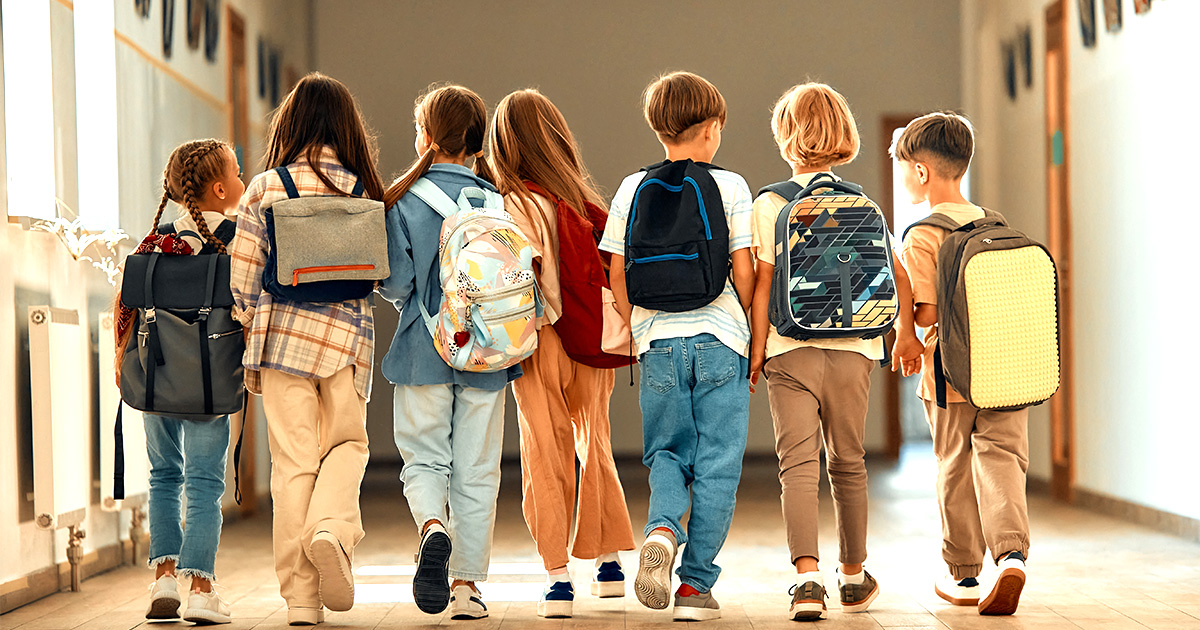- 877.684.1613
- Schedule a Tour

As we enter an exciting new “back to school” season, we want to explore two important educational concepts: Kindergarten Readiness and Life Readiness.
What do they truly mean? How do we prepare young children for kindergarten and, eventually, to lead successful lives beyond their schooling years?
According to the NAEYC (National Association for the Education of Young Children), kindergarten readiness is more than academic knowledge such as recognizing letters, letter sounds, numbers, etc. We need to look at the whole child and their individual development. Appreciating their unique strengths and abilities and adjusting experiences to best accommodate their needs, allows children to develop in many essential ways.
New brain research helps us define readiness beyond academics. “It means that a child has a willing attitude and confidence in the process of learning: a healthy state of mind.” (1) While each child has distinct outward strengths and skills that we encourage and celebrate, it is important to also support the development of their mind to ensure they also embody a readiness to learn.
"How do families help their children gain this state of mind? By being responsive to all areas of their children’s development – physical, emotional, social, cultural, language, and cognitive (thinking).” (1)
Overall readiness begins with strong and meaningful child-adult relationships. When children have secure relationships with the adults in their lives, they more clearly see their value and self-worth. This is one of the guiding principles in our classrooms. When you tour our schools, take notice of the nurturing way our educators interact with each child to build a safe, encouraging environment where they will thrive during the critical years of early development.
As families help children work through frustrations, challenges, and successes at home, they begin to see themselves as capable and able to learn and grow. Their sense of wonder and creativity increases as they problem-solve and engage with the world around them. In the article, Ready or Not, Kindergarten Here We Come! (2), NAEYC provides seven tips for families to support the development of readiness skills in young children. They include:
- Help them develop independence at home. Encourage your child to dress themselves, take their coat on and off and hang it up, use the bathroom without assistance, wash their hands without constant reminders, and put on their shoes. During meals, provide serving spoons so your child can help themselves at the table and clear their dishes.
- Focus on self-help skills. Your child should know how to wipe their face after lunch without prompting and blow their nose without assistance. But be sure they are also comfortable asking an adult for help when necessary.
- Teach responsibility. If you haven’t already, start transferring small responsibilities to your child. After a family trip to the pool, you might put your child in charge of emptying the backpack, refilling water bottles, or hanging wet swimsuits. Even when it may be easier for you to complete these tasks, let them take on the responsibility.
- Develop and follow routines. Set up morning routines that will transfer into a school setting. Getting up around the same time every day, getting dressed, and having an early breakfast together is a great way to transition to school.
- Read aloud to your child. Get your child a library card, take them to the library to check out books, and be sure to read to your child every day. Read a variety of books, read the captions under pictures in the newspaper, or even share the comics. Just read!
- Engage in meaningful literacy activities. Encourage your child to help you with thank you cards, shopping lists, or notes. They may start with scribbles or pictures, move into scattered letters, and finally some recognizable words as they enter school. Appreciate their attempts and watch their skills develop with practice.
- Acknowledge their feelings. Take your cues from your child. They may express being nervous, not wanting to go, or, alternately, feeling very excited to start school. Whatever their thoughts, take the time to appreciate where they are, and tailor your conversations accordingly.
Remember, spending quality time together, being responsive, and positively interacting with your children will support their readiness for school and life.
(1) Readiness: Not a State of Knowledge, but a State of Mind
